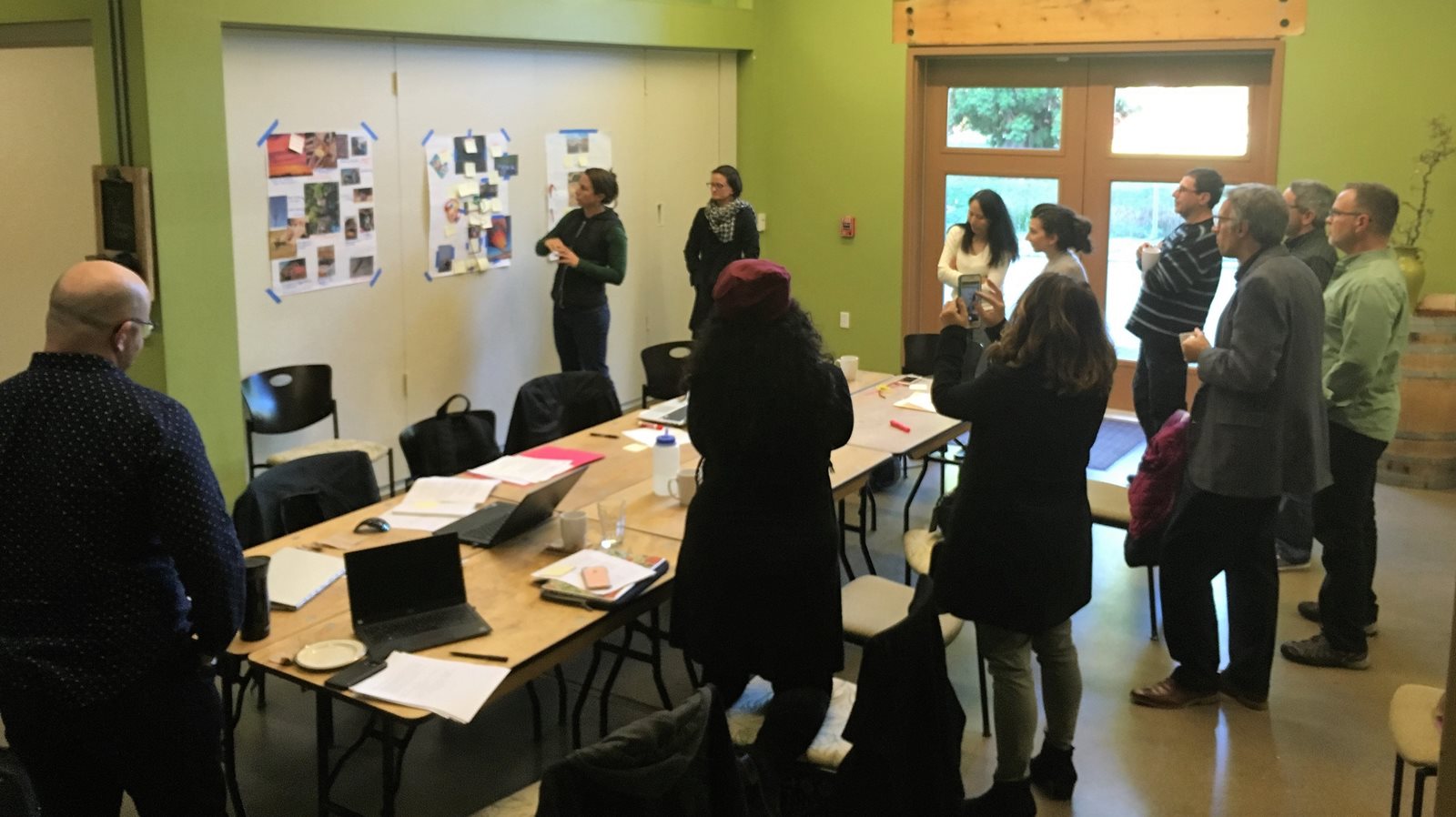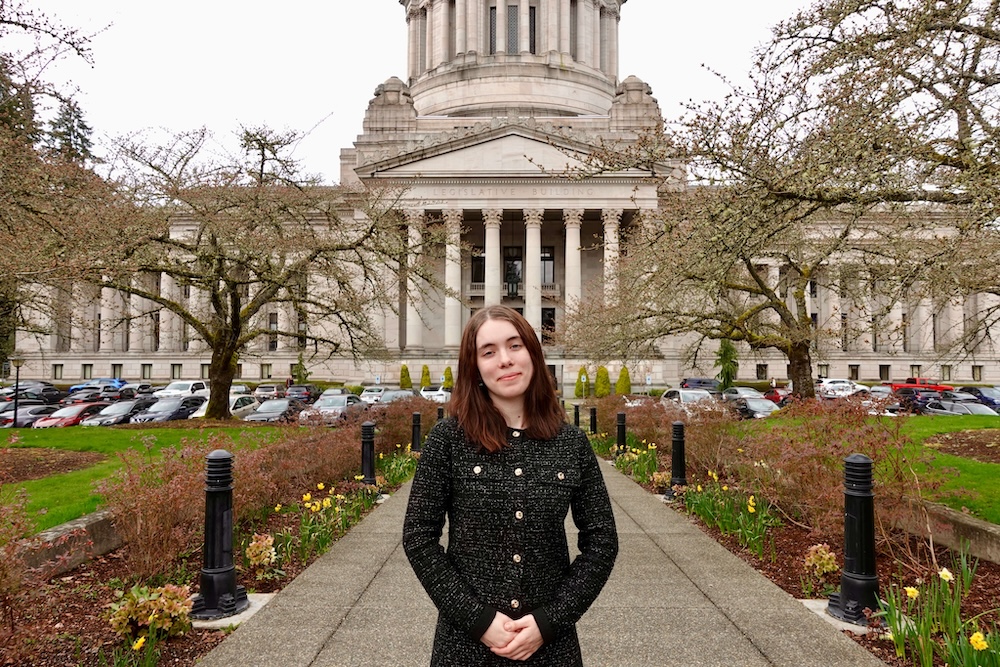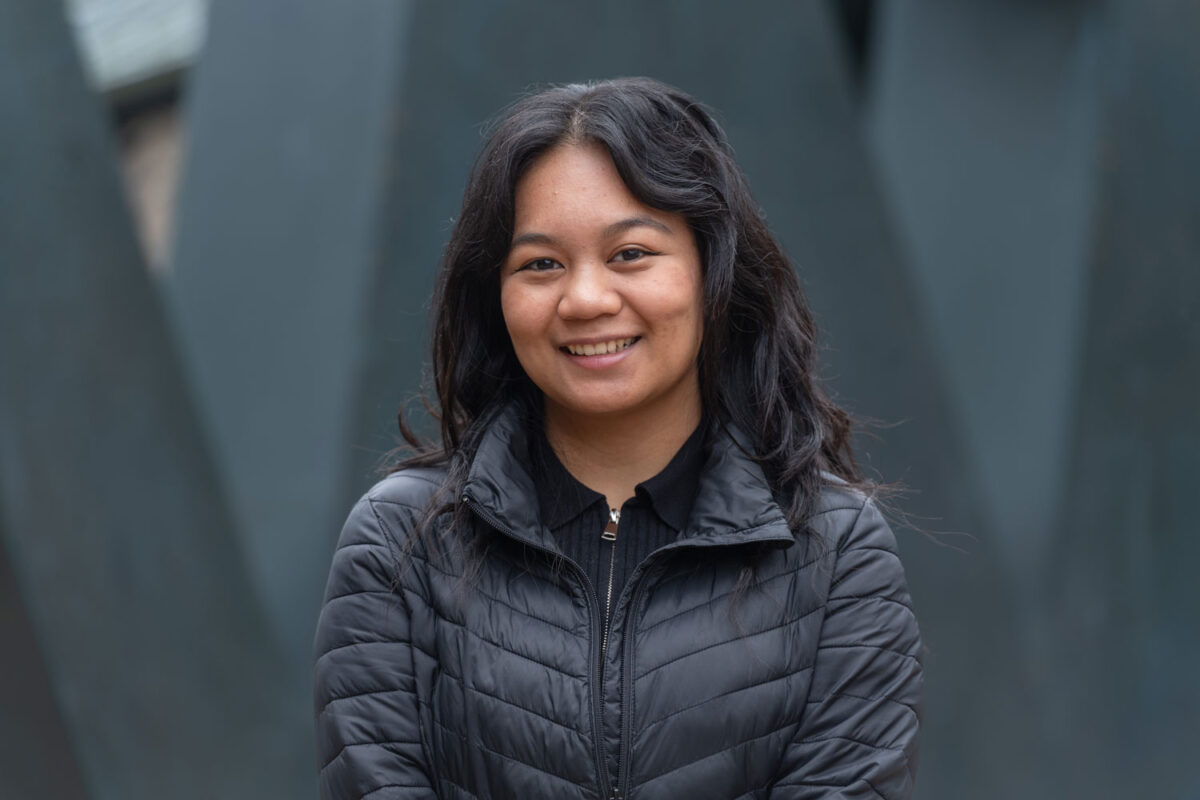By Zachary Nelson
Students learn more when course work blends with hands-on projects, a practice the University of Washington Bothell encourages with annual faculty and staff fellowships that support community research partnerships.

Now in its 12th year, the community-based learning and research (CBLR) fellowship program is part of the University’s commitment to connected learning and community engagement. This academic year, eight faculty members received the fellowship to enhance their collaborative research and teaching in the community.
“Studies have shown that when students apply their learning in their class to a real-world project that impacts the larger community, students take their work more seriously and more deeply retain the content and contextual learning,” said Kara Adams, director of community engagement. “This is mutually beneficial because our students generate results that the organizations and businesses can implement.”
Rajib Doogar, associate professor in the School of Business, is one of this year’s fellows. In his CBLR class, students learn how to analyze financial information to help the King County prosecutor’s office uncover possible fraud. In 2015, for example, students helped uncover the theft of $200,000 from the Kent Little League, which led to the conviction of the league treasurer. “This course teaches students how things really work financially inside an organization and how to tell when something is off,” Doogar said. Doogar is expanding his class to first-year students and hopes to use his fellowship to accommodate more students.
Avery Shinneman, a lecturer in the School of Interdisciplinary Arts & Sciences (IAS), received a fellowship to support lake restoration work with the Snohomish County Department of Public Works. “The learning objectives of the class are tied to the partners’ own goals,” she said. “Resources are limited for the county, and we are able to step in and help them conduct research they normally wouldn’t have enough time to do.”
Doogar and Shinneman are just two of the CBLR fellowship recipients. Other projects are as varied as mental health, vertical gardens and the arts.
Hoa B. Appel, a lecturer from the School of Nursing & Health Studies (NHS), is focusing on behavioral and mental health among Korean Americans. She is working with the Korean Women’s Association to identify community members with behavioral or substance abuse issues and then help them receive treatment.
Raissa DeSmet, a lecturer from IAS, is working with the Burke Museum at the UW in Seattle. Her class will be getting hands-on experience working with managers to catalog, pack and transport 50,000 objects in preparation for the opening of the new Burke museum in 2019.
Pierre Mourad, a professor in the School of Science, Technology, Engineering & Mathematics, is working with 21 Acres, a Woodinville center for sustainable farming. He will work with students in computer engineering and electrical engineering to research a vertical garden.
Jed Murr, a lecturer in IAS, is focusing on Black Arts Northwest, a multiyear, multiform collaborative project. His class will support black artists and cultural workers in the Pacific Northwest, in part by providing research about black political and aesthetic movements.
Arkady Retik, a lecturer in STEM, and his class will help teach K-12 students computer programming. The class will be working with community groups such as the YMCA to inspire and teach kids who may not otherwise have had access to this information or considered programming a career path.
Anna Winquist, a lecturer in NHS, is partnering with the Regional Medical Center in Everett. The students will be reviewing health literature in the community and recommending possible improvements.
Fellows are selected for work that will enhance student learning and increase community based research. Winning projects also support UW Bothell’s commitment to promoting access, inclusion and participation of diverse and historically underrepresented students. Building partnerships with more diverse community organizations is another goal of the CBLR program.
A committee of CBLR fellows from previous years review proposals. Recipients receive $1,000 to spend on the project and research outlined in their application.

At a retreat at 21 Acres, CBLR faculty fellows create concept maps of community-based learning and research . (Photo courtesy of Kara Adams)



